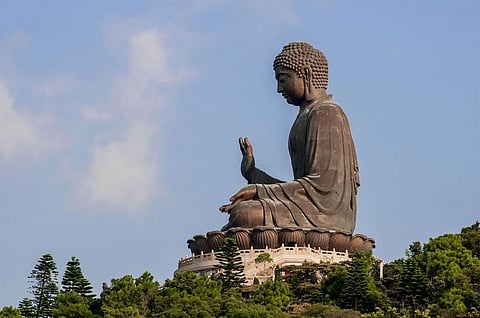The founder of Buddhism was a young prince of Nepal, Gautam Buddha. After gauging that wealth and luxury do not guarantee inner peace, he set out to find inner peace. Even after devoting his 16 years to the grind in public relations, Schlosser failed to plug the void within. 'Unfulfilled' as he felt and rattled by the rat race around, he said, "The transition didn't happen overnight. He began to read and notice the difference between Eastern and Western philosophies. Encounter with Buddhism made me feel that I have reached the spot," he revealed in spiritual satiety.



